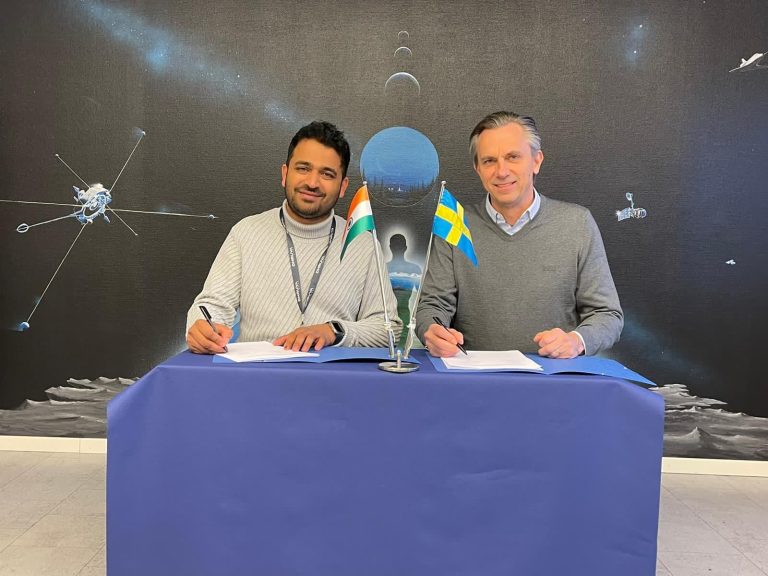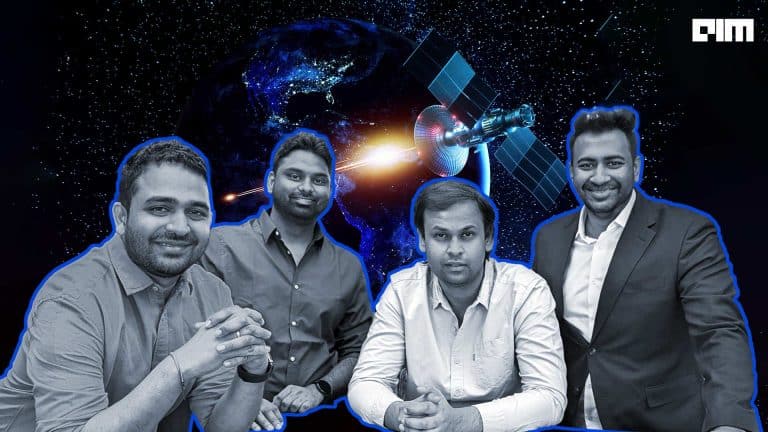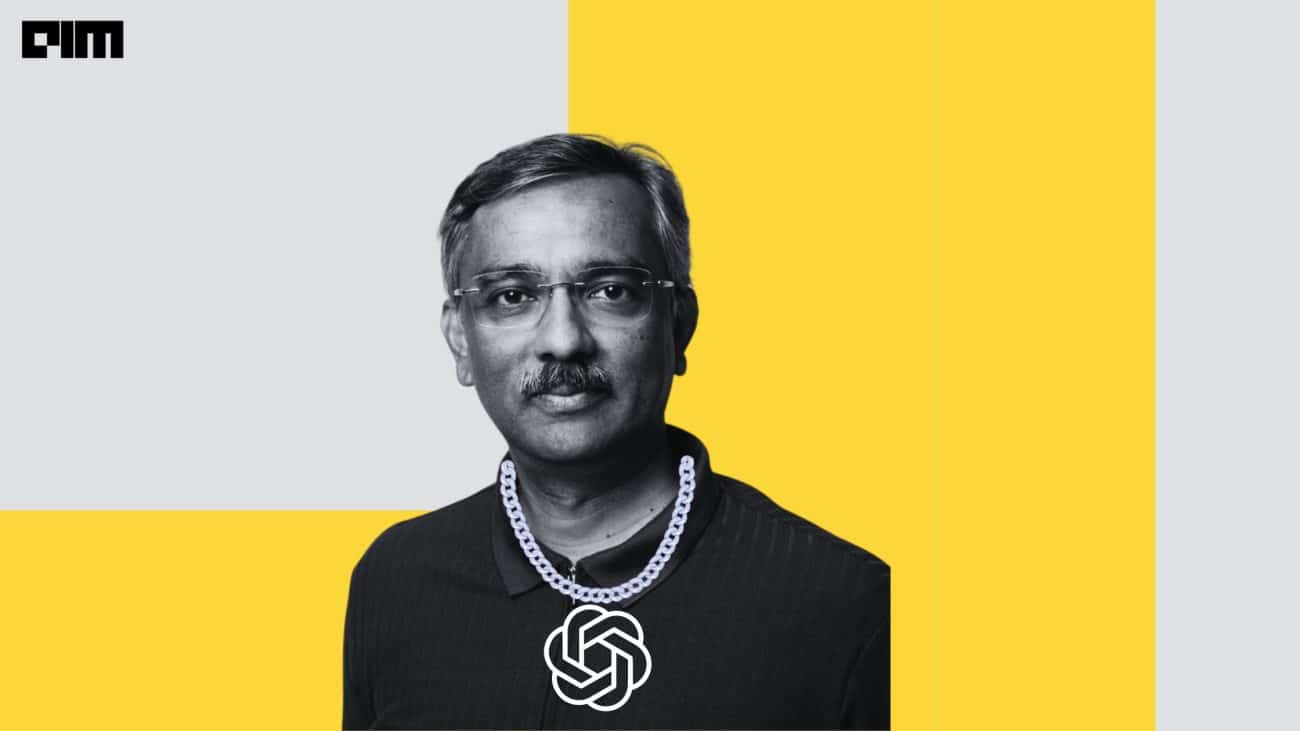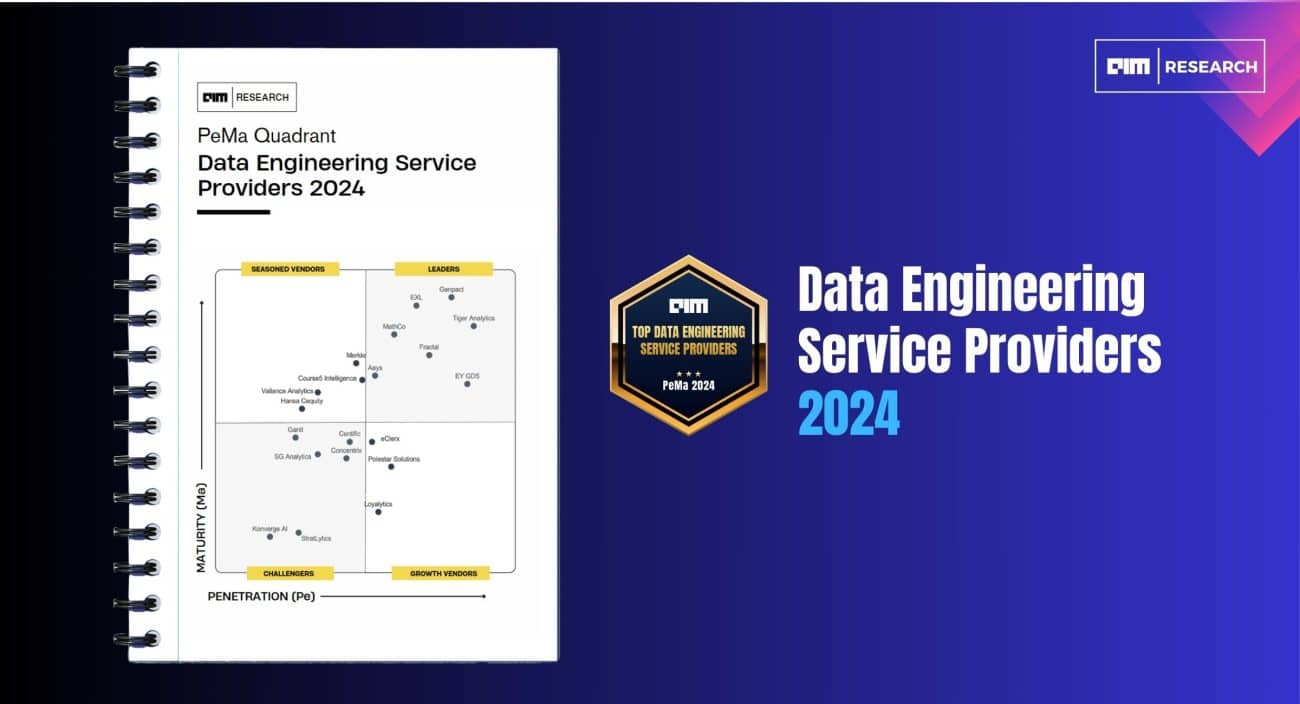|
Listen to this story
|
Starting a space-tech company is easier said than done. When Sanjay Nekkanti built India’s first student nano-satellite project, he wanted to kickstart his own space venture. However, he had little to no support until he met—Narayan Prasad, a mechanical engineer pursuing a Masters in Space Science and Technology at Luleå University of Technology in Sweden as part of the multi-university Erasmus Mundus programme.
While there were five individuals interested in forming a satellite building company, eventually it was only Nekkanti and Prasad who returned to India in 2012 and co-founded Dhruva Space, alongside a few folks from ISRO and interns from Europe. However, the move was seen with doubt and scepticism by many in a country which hadn’t seen a private company building a satellite—that too after having a national space programme for 45 years (ISRO).
“Back then, when we started Dhruva space like 11 years ago, the concept of a startup ecosystem was virtually non-existent to a large extent, let alone investors and money and so on,” said Prasad, in an exclusive interaction with AIM, saying that it was too early in terms of product and customer understanding the value of companies going into investors, knowing that this is a sector worth investing in.
“That led me to believe that we are way too early, and basically I think the timing is one of the things that really matters for success in a venture,” he added, sharing his decision to return to Europe leaving Dhruva Space behind in 2017.
This eventually led him to explore opportunities in Europe, where he believed the ecosystem was more favourable, and there were fewer barriers to work across nationalities. He later moved to the Netherlands and started an online marketplace for space-related products, called Satsearch in 2017, alongside Kartik Kumar and Alberto Vaccarella
Touted as the Amazon of space, Satsearch through its platform acts as a bridge connecting space-tech buyers and sellers, however, it is not involved in transactions but serves as a communication and information platform.
It incurs prices based on the company size and other such metrics. The company also utilises its data to provide valuable supply chain insights through its subscription-based platform to help with price discovery amongst other things. However, it is free to use for individuals.
One of Satsearch’s key strengths lies in its growing knowledge base. It holds data on approximately 3% of the estimated 100,000 suppliers in the space industry. This knowledge is vital for lowering the cost of access to space by increasing competition and transparency.
By expanding this knowledge base, Satsearch aims to drive down costs and create opportunities for both buyers and sellers.
“We’ve already helped companies like Accord (a Software & systems designer that manufactures GPS/GNSS) in Bangalore sell to global customers or assist Dhruva Space,” said Prasad, who is now helping global companies understand India’s potential.
Challenges Galore
Prasad said that Indian space tech companies face specific challenges, primarily stemming from their origins as service providers rather than product designers. He said that many companies have the infrastructure and expertise for manufacturing but lack the design knowledge to create end-to-end products.
“I think there are two types of Indian companies. One is the companies who work with ISRO and with their ecosystem, they only have manufacturing capabilities, they don’t have product design teams because most of the product design capabilities sit in ISRO—and then all the new space companies that is where the design capabilities are starting to build their own product or service. And for that, you need to have your own IP and your own design team,” explained Narayan,
Further, he said that it is not a lot of value as customers want an end-to-end product to be able to take a big market share. He believes that bridging this gap is crucial for Indian companies to expand their customer base and market reach.
Prasad also expressed concern about the current focus on fundraising and customer acquisition, suggesting that the industry should prioritise customer-centric approaches. Real success, he believes, lies in serving customers effectively and meeting their needs rather than accumulating funding.
While Prasad’s observation of the Indian market has been that they operate within the borders, he is of the opinion that the companies need to explore the market beyond the borders to build trust and be at par with international vendors.
Making Space for India
Satsearch told AIM that it has two primary goals: “Taking India to the world” and “Bringing the world to India.” The former involves helping Indian space-tech companies reach global customers without the enormous costs associated with international business development. By providing a platform for these companies to showcase their products, the company facilitates customer diversification and, in some cases, even successful sales to global customers.
Furthermore, the platform assists companies in India with procurement for their own missions. With the nation’s burgeoning activity in the space sector, there is a growing need for components like of semiconductors, sensors, and actuators. Satsearch steps in by connecting companies with established supply chain knowledge to ensure they can efficiently source the components required for their missions.
“About 1,500 people from India use our platform every month. We have engineers, from companies, including the likes of L&T, their engineers also use us to find vendors for their own missions,” said Prasad.
Global Collaborations
Prasad said that the aim is to reduce costs for Indian companies expanding abroad, particularly in Europe, by offering their products or services. By curating meetings with Indian companies, Satsearch assists foreign entities in finding synergies and partnership opportunities within the Indian market.
“For the global companies, what we’ve been doing is helping them understand India beyond ISRO,” said Prasad, citing how they are helping one of their customers based out of Italy in exploring potential synergies for collaboration early next year.
“There are companies who are coming to us saying that they want to consider a manufacturing base, or supply chain base for some of the productions that they have and they want them to manufacture for us,” Narayan said, hinting at the plausibility of joint ventures, and technology transfer opportunities in defence and other sectors.
Bootstrapped Satsearch has a user base of 25000 every month from over 120 countries, with customers in about 35 countries. It also has 3000 suppliers, like Bangalore-based Skyserve, Kepler Aerospace, and BEL to EU-based suppliers like Bradford Space, SteamJet Space Systems, and companies like Space-Z from the US amongst others. They also keep adding more companies to the platform.
Embracing failures
Prasad also argued that failure is a natural part of innovation and growth and acknowledging mistakes and rectifying them openly can foster a culture of learning and improvement.
“I was very happy when Bellatrix was upfront about their failure. They were very open, they came in front and said look, we have a problem, we’re gonna rectify. So that was quite nice.” said Prasad, referring to the struggles of Bellatrix Aerospace.
While some companies may grab headlines with flashy announcements, Prasad emphasised the importance of “quiet achievers” in the industry like Hyderabad Vassar Labs. Companies that focus on providing value to customers, rather than seeking attention, are making a significant impact on the ground.
Speaking about the difference between the Indian market and that in the Netherlands, Prasad said that due to a lack of demand locally, the Dutch need to go find business abroad. Whilst, the market in India is growing and India has a local market to capture.
However, he suggested that, to grow, “By default your approach should be, that, I have customers that I need to go find abroad”.




































